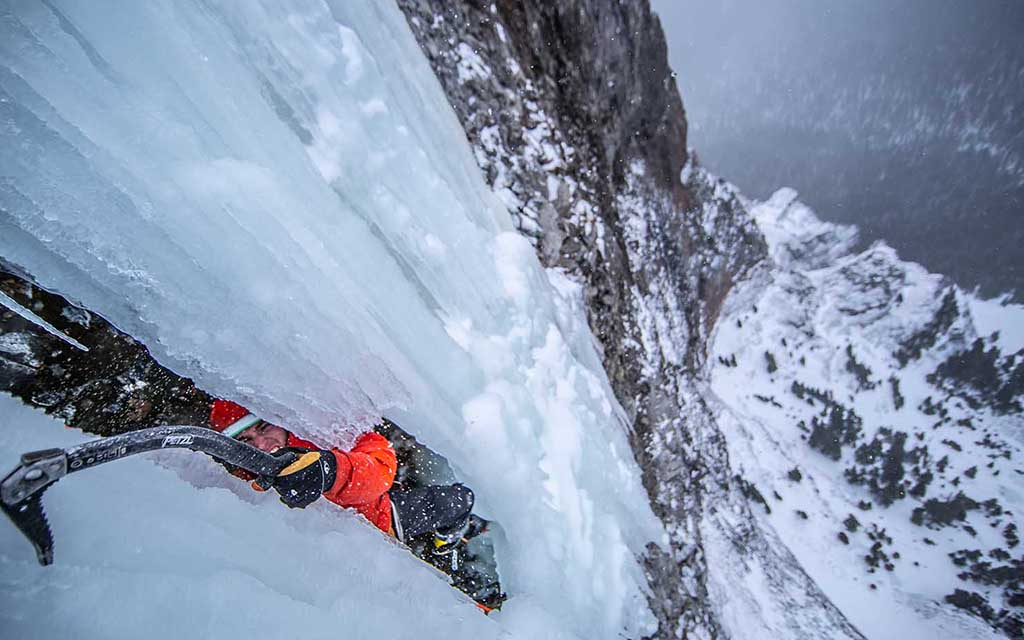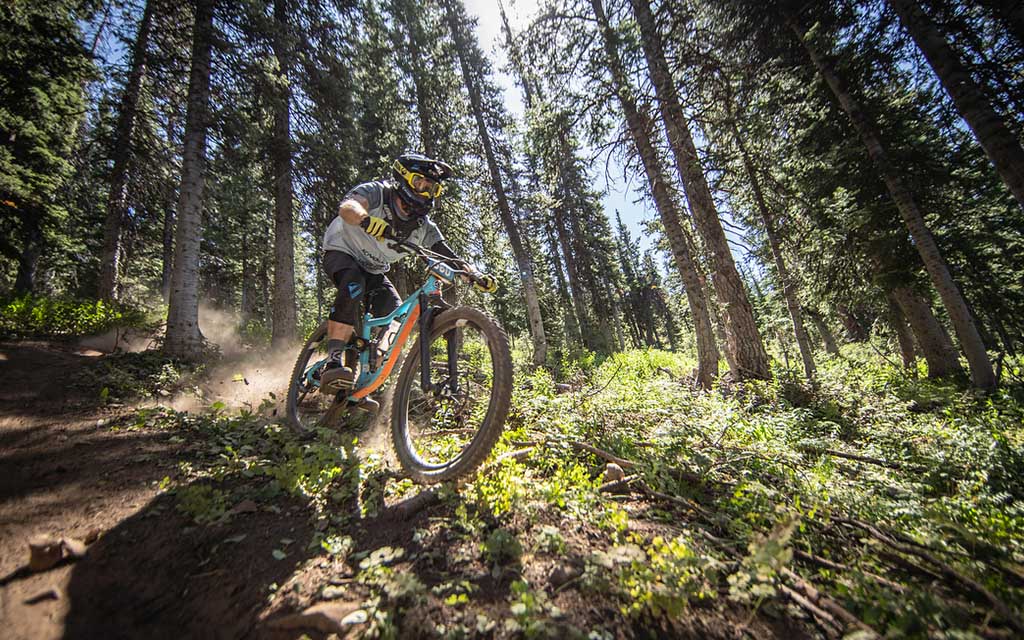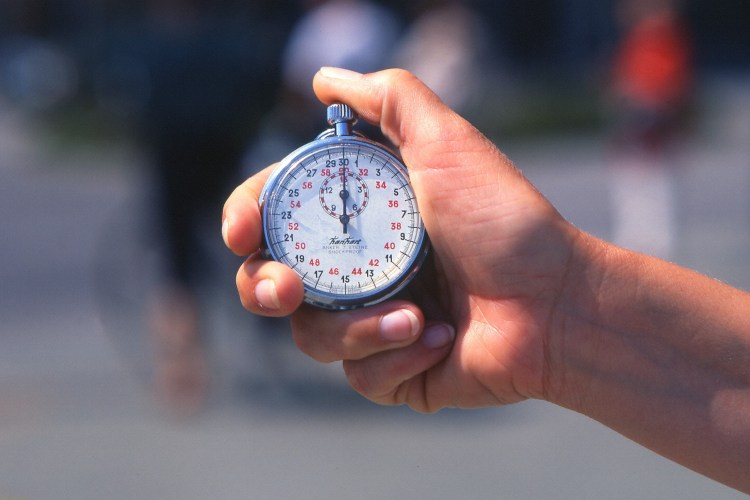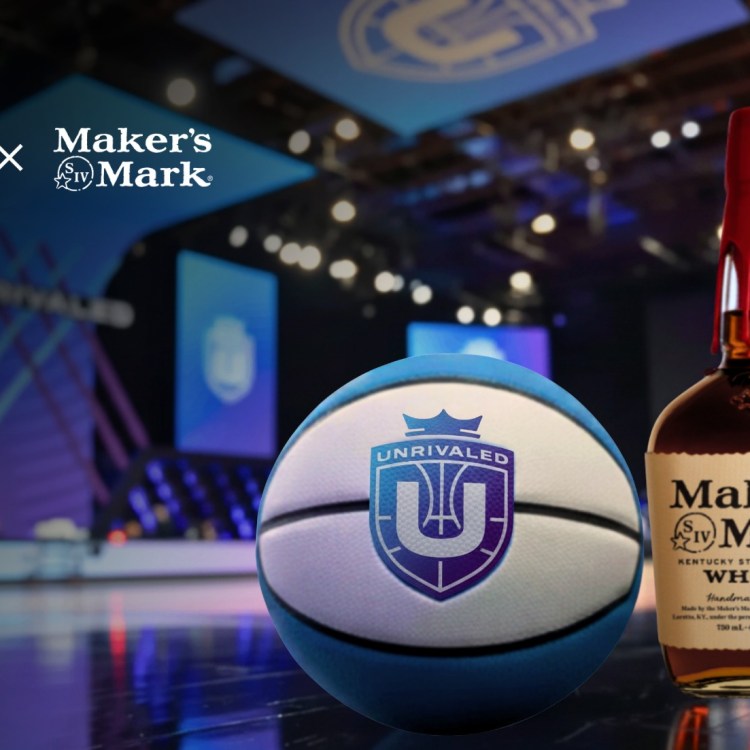Some people have taken on hobbies while in quarantine: trying to learn a new language, taking up art, binge-watching Netflix shows, etc. But what about people who spend their time on their own, often hanging from the side of mountains? How does the downtime impact mountain climbers?
Before the COVID-19 lockdown in Montana, Nathan Norby and Matt Cornell — described by Alpinist as “one of the last true dirtbag climbers” — were shooting The Nutcracker, a film about an infamous 600-foot route in Montana’s Hyalite Canyon that Cornell recently free-soloed. Cornell, who doesn’t own a car, rode his bike and hitchhiked five times a week to run laps in preparation for going ropeless.
Justin Willis, a professional climber who competed in the UIAA World Ice Climbing Cup when he was just 17, was camped out in the Paradise Valley with his father, building a house. Soon, Willis will go to Billings to manage volunteers and help run a much-needed temporary homeless shelter. The three of them talked with InsideHook about how they’re handling the downtime.
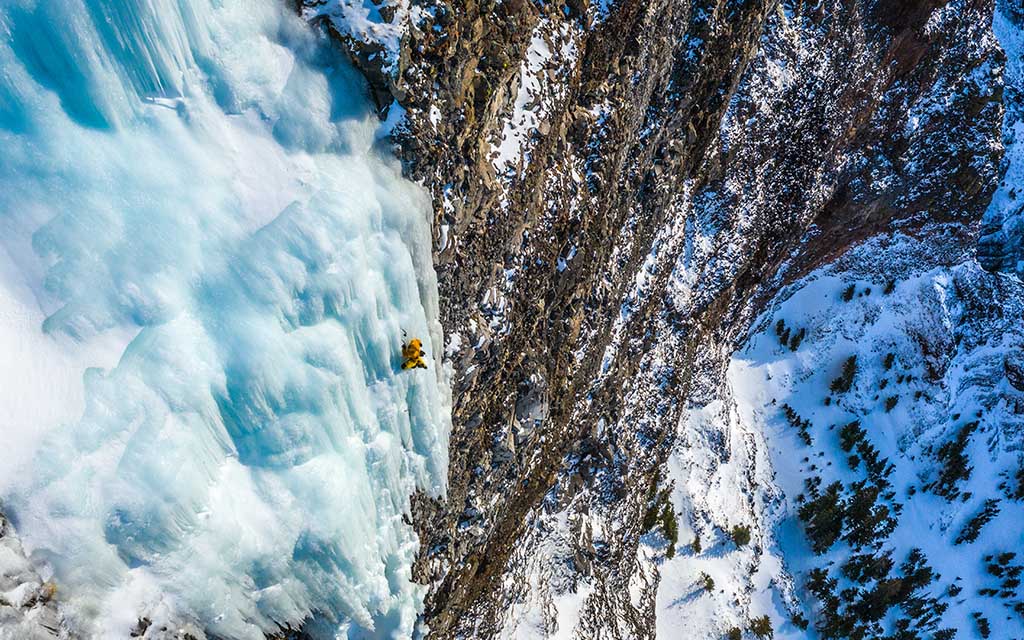
What have your days been like so far during quarantine?
Cornell: I’ve set my climbing tools down for the season to avoid any temptation. Instead, routines on the dry-tool wall and hangboard, training rides on the bike, reading-and I’m baking a ton of cheesecake cookies. I’m always trying something new or tweaking favorite recipes.
Norby: This week is an editing week, which I greatly enjoy and fondly hate. I find storyline-editing drunk and refining sober to be good coping mechanism during these times. Fortunately, we’ve shot ninety percent of Matt’s and my new film-in-progress, The Nutcracker, about his solo climb. Bringing that to life is making quarantine not so bad!
The film explores Matt’s drive, and his experience of preparing and completing the climb. The Nutcracker lives in the bowels of Hyalite Canyon, outside of Bozeman, Montana. The ice feature hangs proud and high above everything else, luring climbers since the early days of ice climbing to the unprotected and exposed base. This February, Cornell walked there alone and soloed the route for the first time. The film also tells the story of the route’s history; it was established by Conrad Anker and Kristoffer (“Kris”) Erickson in honor of their friend Alex Lowe in 2013, nearly 15 years after Anker’s best friend and climbing partner died in an avalanche.
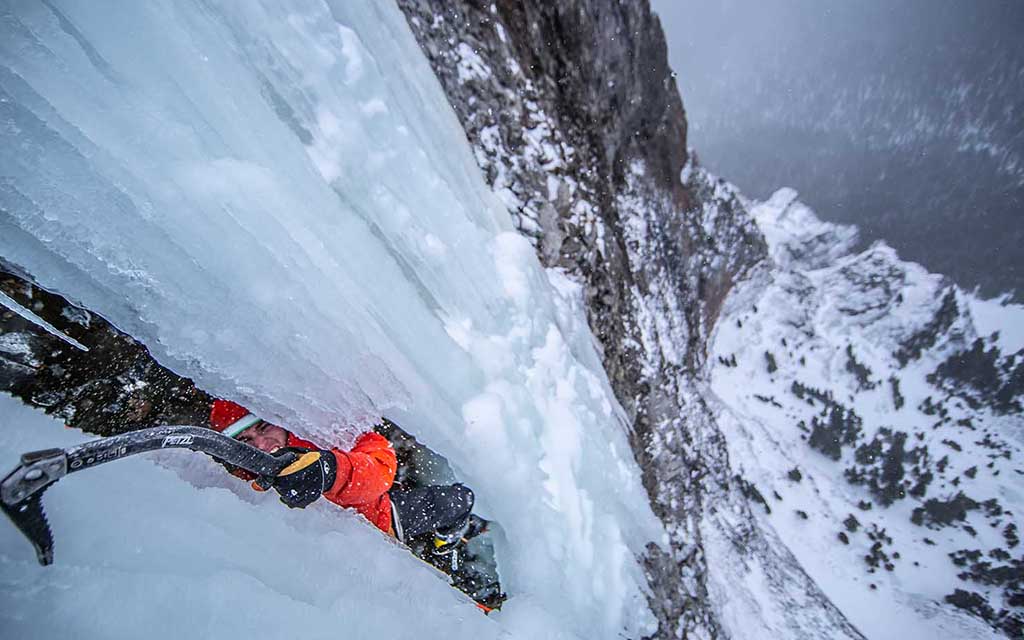
Willis: I have bouldered outside — I’m not much of a boulderer — but only on unclimbed boulders I found while galavanting around the state years ago, and never above 10 feet. I’m keeping it very conservative while also staying fit.
How have you been adventuring — or building toward future projects— now that most climbing is shut down for a while?
Willis: I was quarantined with my dad, who is a climber and skier. We both love exploring new zones more than we like the actual skiing, so we’ve just been going on mellow, often mostly flat ski tours into drainages we’ve never explored.
We stumbled onto stands of massive old-growth trees and herds of thousands of elk with no humans remotely close to us. As a climber, I’m usually checking out blank places on the map that have rocks.
Walking with no real purpose — other than because it feels good — has proven to be really great.
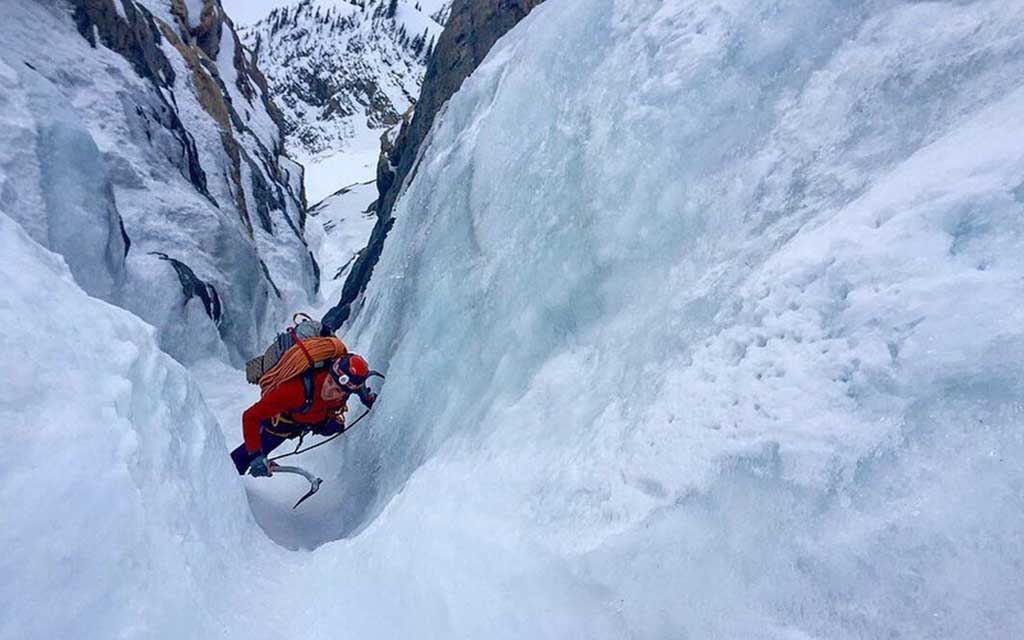
Norby: Just staying in semi-good physical shape and handsome mental shape. Mostly hangboarding and dry-tooling, along with running and biking. Helps keep the old age away! Hardest thing is going to be the mental health game, when we’re used to being out a few times a week to nothing. It can really mess with our heads.
Cornell: It’s important to me to be at the right spot and time for the ice conditions to be perfect. The ice is constantly changing—in the spring, fluctuating temperatures and longer days either creates or destroys the ice. Just as we were starting to lock down for COVID-19, I was noticing some famous smears of ice start to form in Hyalite.
What’s most important for you about ice climbing right now, in light of the pandemic?
Cornell: While I’m hopeful that those smears continue to come in completely, it’s important to recognize that during these times you cannot make rash decisions. Getting injured is currently an unacceptable outcome. Even if the risk is low, it’s not worth it.
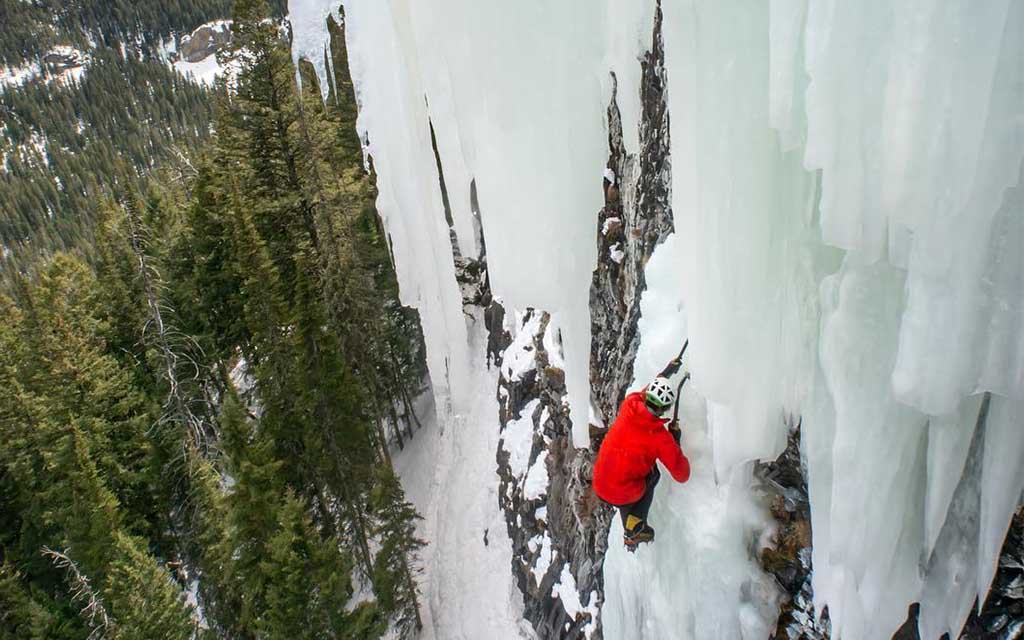
Willis: I’ve embraced the fact that ice climbing is a privilege. I always knew that it was a privilege, but I’ve lacked a true understanding of that until now. I don’t have basic life needs to worry about, so I can justify the risk that’s inherent in a sport like ice climbing. I’m really grateful that I’ve been fortunate enough to have experienced so much winter beauty in the mountains.
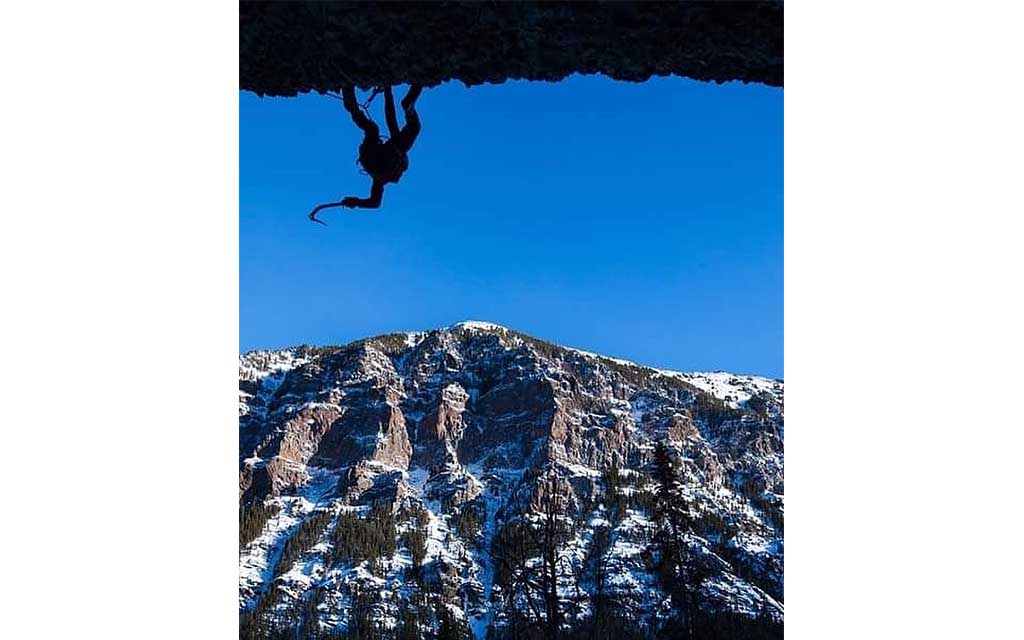
What have you been reading or listening to pass the time?
Cornell: American Alpine Journals (350+-page tombs of first-person accounts of first ascents, delivered annually in print form but also available online). If I’m ever curious about an area it’s the first place I turn to for information.” Historical climbs are also documented there. I’ve also been watching daily live acoustic sets by Death Cab For Cutie frontman Ben Gibbard during lockdown. It’s calming, relaxing, and something to look forward to—and a change from the heavy metal I usually listen to while climbing.
Willis: Radiohead. No idea why it took a global pandemic for me to find this band, but it’s keeping the psyche high!
Norby: Into Thin Air by Jon Krakauer. It’s interesting how stories typically take a similar shape, whether in print or on screen. Jon’s way of setting up the event, the characters, and the climb is something I aspire to be able to do in film — I love how it all connects.
The Charge will help you move better, think clearer and stay in the game longer. Subscribe to our wellness newsletter today.
